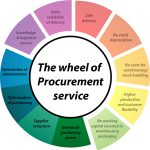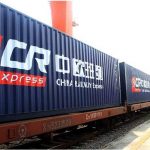FCL or LCL
What is the difference between FCL and LCL? In the process of container cargo circulation, the form of cargo delivery is divided into FCL and LCL. FCL cargo refers to the cargo that is packed by the consignor and is responsible for filling in the packing list and the station receipt, and sealed by the customs. Habits are understood as a consignor and a consignee.
(If you decide to get real manufacturers, just send inquiry to us or email us at info@bestplusgroup.com )
LCL cargo refers to the cargo that is packed by the container freight station, is responsible for filling out the packing list, and is sealed by the customs. Habitually understood as several consignors and several consignees.
According to the number and method of container cargo, there are two types: FCL and LCL:
(1) Full container load ( FCL )
The consignor controls the packing, counting, stowage and lead-sealed freight. The unpacking of FCL is generally handled by the consignee. However, it may as well appoint the carrier to unpack the container at the freight station. However, the carrier is not responsible for any damages or poor cargo in the box. Unless the cargo party proves that it is the loss of the carrier’s liability accident, the carrier shall control the compensation. The carrier uses the container as the delivery unit for the entire container. As long as the surface of the container is similar to that when it is received and the lead seal is complete, the carrier has fulfilled the responsibility of the carrier. On the FCL freight bill of lading, an entry of “appointing person to pack, count and seal” should be added.
(2) Less than container load ( LCL )
The relative term for full container cargo refers to goods with small invoices that are less than a full container. This kind of cargo is often separated by the carrier and assembled at a container freight station or inland station. Afterwards, it will be sorted and sorted according to the nature of the cargo and the destination. Two tickets or more than two tickets to the same destination will be sorted. The goods are assembled in a container and delivered separately at the container freight station or local station at the destination. For this kind of goods, the carrier has to bear the packing and unpacking functions, and the packing and unpacking fees are still charged to the cargo party. The carrier’s responsibility for LCL cargo is basically the same as that of traditional grocery delivery.
(If you decide to get real manufacturers, just send inquiry to us or email us at info@bestplusgroup.com )
The customs clearance procedures for LCL cargo are more complicated and time-consuming than FCL cargo. First, the entire container of goods exactly fits the minimum unit of customs inspection, sealing, and release of the exporting and importing countries. For a batch of goods, as long as the exporter and importer’s orders are reasonable and complete, the export customs and import customs handle After completing the relevant procedures and levying relevant taxes and fees, customs clearance will be suspended soon. The LCL is not so simple and fast. As long as the cargo in the container is ignored, the export customs will not release the cargo. Because the export customs must seal the exported containers before allowing the loaded containers to leave the country. Therefore, in the same container, the failure of any goods to clear customs will inevitably affect the timely export and transportation of other goods.
Secondly, LCL cargo is far from being as extensive and flexible as FCL cargo. It requires the transportation company to solicit and reasonably match some shipping port, destination port, delivery date, cargo type, volume, weight and other aspects. The conditions are all in line with the export goods that fit into the same container. These requirements are very difficult to make, and the time required is relatively long. If the shipping company consigned by the cargo owner is not strong enough, then the time for cargo transportation will be slower and longer.
(If you decide to get real manufacturers, just send inquiry to us or email us at info@bestplusgroup.com )
Third, under normal circumstances, FCL cargo may be shipped directly at inland ports, while LCL cargo is only suitable for delivery at developed coastal ports because of the relatively few inland sources and relatively more coastal sources. This will undoubtedly add a lot of special troubles to exporters. According to the relevant regulations of the Chinese government, exported goods must be inspected by the Commodity Inspection Bureau in the place of production and the place of export declaration. If the goods are declared and exported locally within the jurisdiction of the province (autonomous region, municipality directly under the Central Government) where the goods are produced, only one commodity inspection is required for a batch of goods. Otherwise, if it is a customs declaration in another place, a batch of statutory inspection of export commodities must pass two inspections before the customs will release it.
LCL cargo is more expensive than FCL. Under normal circumstances, the transportation costs of FCL cargo in sea freight generally include three items: freight, transportation surcharges and port charges. The freight and transportation surcharges for LCL and FCL should be the same. The difference in cost is only in the assembling of the transported goods at the port of shipment and the unpacking at the port of destination. It stands to reason that these two costs should not be very large. Then, because the labor cost levels of countries and regions in the world are very different, and exporters know little about those specific differences, or even completely do not know, the original LCL cargo ratio The freight and miscellaneous cost of the whole container is very reasonable by adding a certain percentage of LCL, unpacking and storage fees on the basis of the overall consistency.
(If you decide to get real manufacturers, just send inquiry to us or email us at info@bestplusgroup.com )
Website: www.bestplusgroup.com
Email: info@bestplusgroup.com

 Previous Post
Previous Post Next Post
Next Post

